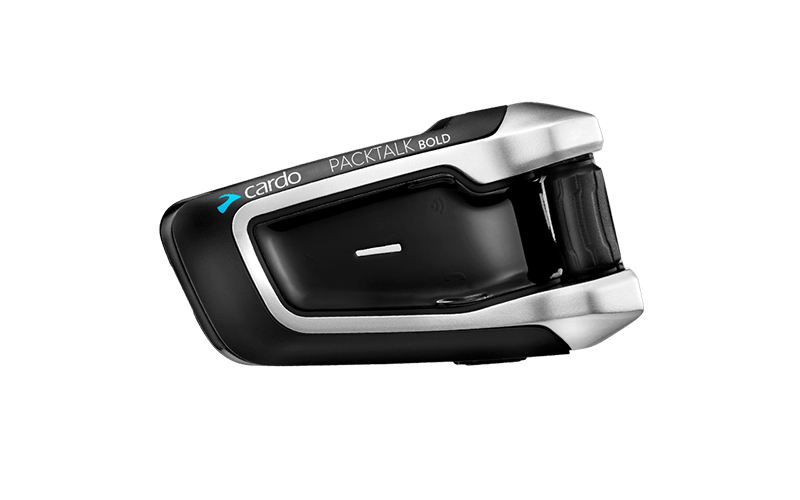
Wireless communication devices (we can’t just call them Bluetooth anymore) are getting better and better. Think of your biggest complaints about them just five years ago…the list probably included difficult and/or unreliable pairing, especially in groups of three or more; poor connectivity over distances and in areas like tight canyons; controls that are hard to use with gloves on and horrible audio quality.
I’ve been testing Cardo’s new top-of-the-line Packtalk Bold and have good news: you can probably cross all of those issues off your list. Is it perfect? No, but technology seldom is. Is it the best such device I’ve tested thus far? Yes. Is it worth the $339.95 retail price? Only you can make that call. To help you along, here is my take.
The Packtalk Bold replaces the Packtalk, which was Cardo’s first DMC mesh communicator (read our review here), and it has three noteworthy features: mesh technology, voice-activated operation and a JBL audio system. We’ll start with the mesh.
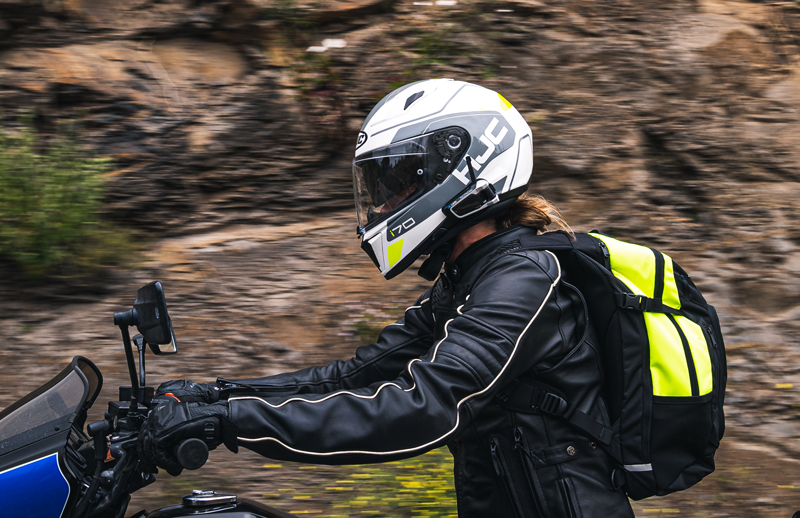
Mesh technology is the next generation in bike-to-bike communication; rather than connecting in a relatively simple Bluetooth “daisy chain” that means just one lost connection breaks apart the whole group, DMC connects a group in something like a web. Riders can come and go, disconnecting and reconnecting at any time, without affecting the rest of the group.
This is especially helpful on group rides when you might get spread out over many miles, or when you head into a tight canyon and slower riders fall behind. On our first test ride with the Packtalk Bold, my group of seven riders got split into three and four on Latigo Canyon Road, a notoriously tight, technical route. As the three of us in the lead pulled ahead and the walls of the canyon closed in, the remaining four were disconnected.
The cool thing was, both groups could still communicate amongst themselves. Then when the back four caught up, they automatically reconnected with us and presto! We were one big happy riding family again. This continued throughout the day, with no buttons to press and no fussing with re-pairing at stops. At the end of the day, one rider and I split off from the main group to head home, and even after we rode out of range and disconnected from the group, she and I were able to chat until we eventually rode our separate ways. Cool!
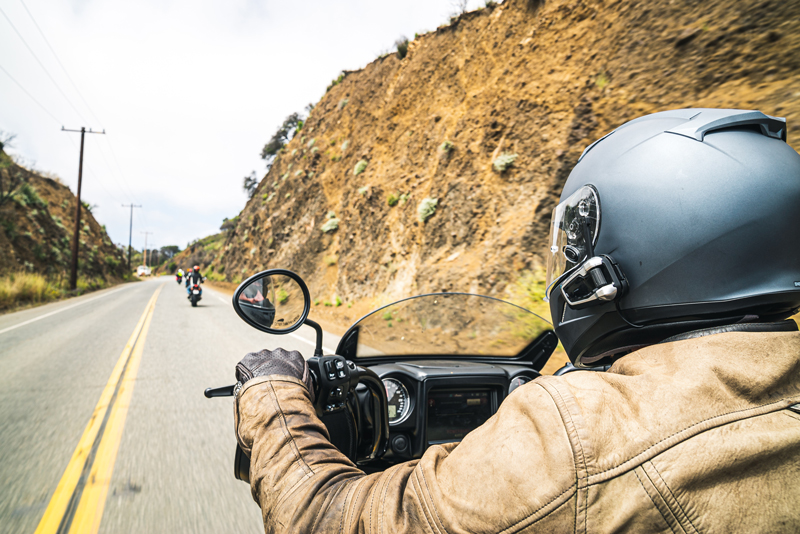
The initial pairing process was pretty simple as well. After we all entered DMC pairing mode, the group “admin” pressed one button and we stood in a circle, holding our helmets close together. One by one the flashing green lights turned purple, which meant pairing was complete. From that point on, until we remove ourselves from the group via the Cardo app or reset our units, our Packtalk Bolds will remember this group and automatically reconnect if we ever have occasion to ride together again.
While the Packtalk Bold features DMC mesh technology, it also has Bluetooth capability and can be paired to Cardo or other brands’ Bluetooth communicators. It also uses Bluetooth to pair to a GPS, motorcycle or phone.
Private conversations with another mesh group member (like your passenger) require the app, or by pairing with them in advance separately using Bluetooth, then you can both press a couple buttons on each unit and temporarily check out. You can also mute yourself from the entire mesh group if you wish.
The second neat-o feature is what Cardo calls Natural Voice Operation, meaning the rider can leave his/her hands on the grips where they belong and operate the Packtalk Bold with voice commands. The feature is always on, so at any time you can say, “Hey Cardo,” followed by the command: “volume up,” “mute audio,” “music on,” “next track,” even “battery status.” It even allows for “Hey Siri” and “OK Google” commands to your phone. I found it worked great as long as I spoke at a normal level; shouting distorts your voice so it doesn’t always get recognized.
Neat-o feature number three addresses the tinny sound quality we’ve come to expect from helmet communication systems. Cardo partnered with higher-end speaker manufacturer JBL to tune the Packtalk Bold’s audio performance for use specifically in a motorcycle helmet, an industry first. The JBL speakers are considerably larger in diameter and a bit thicker than the previous Packtalk’s, meaning placement directly over your ears might be a bit tough depending on how much space your helmet allows. That said, they fit snugly into the cutouts in my HJC i70 full-face and were positioned fairly well.
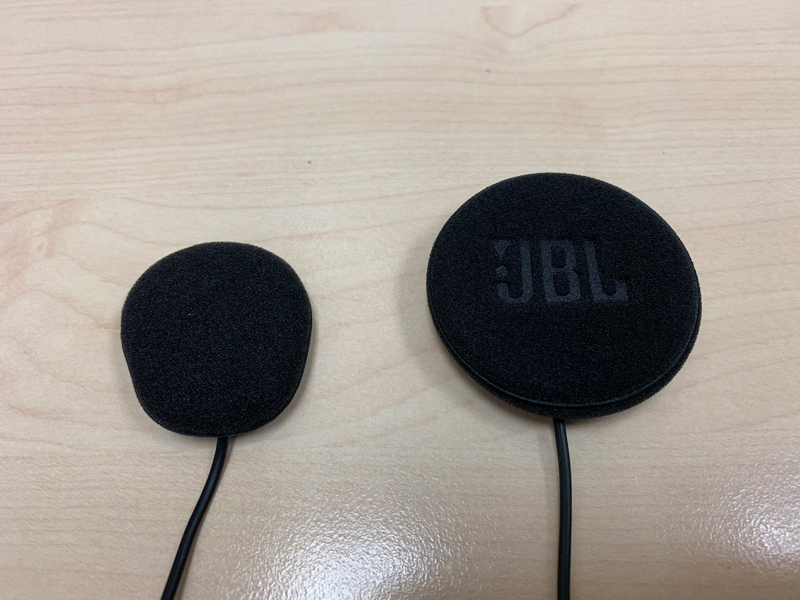
As with just about everything nowadays, you’ll need to download the free Cardo Connect app for your phone in order to make the most of your Packtalk Bold, including setting volume levels for things like music, system prompts and intercom, adjusting the sensitivity of the automatic volume control (which adjusts volume based on ambient noise) and choosing regular, bass boost or vocal EQ profiles from the JBL sound system. I chose bass boost since that’s my primary complaint about in-helmet audio, and when compared back-to-back with the previous Packtalk’s speakers the JBLs are a marked upgrade. Low-end was fuller but the midrange was also more fleshed out, giving me a more pleasurable music experience.
Notably, owners of the previous Packtalk can purchase the JBL sound upgrade for $89.95, which includes the speakers as well as a software update.
The Packtalk Bold’s shortcomings are few: while “Hey Cardo” commands worked every time, I found “Hey Siri” to be less reliable, and the maximum volume level, even with the JBLs, is not quite loud enough for freeway speeds. “Audiophile” earplugs like these from Etymotic rather than traditional foam plugs might help.
Otherwise this is a well-designed, highly functional helmet communicator that really steps up the game. A Duo pack is available as well, with two pre-paired units for $599.95.
For more information, see your dealer or visit cardosystems.com.
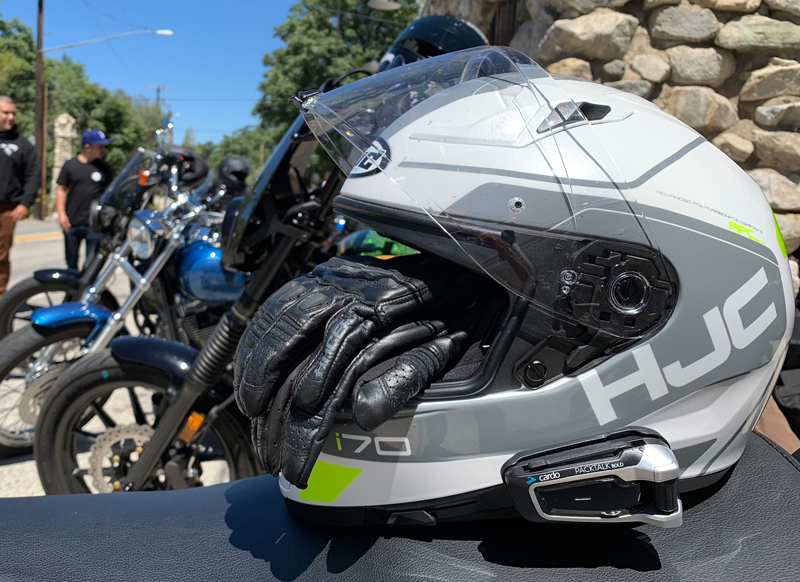
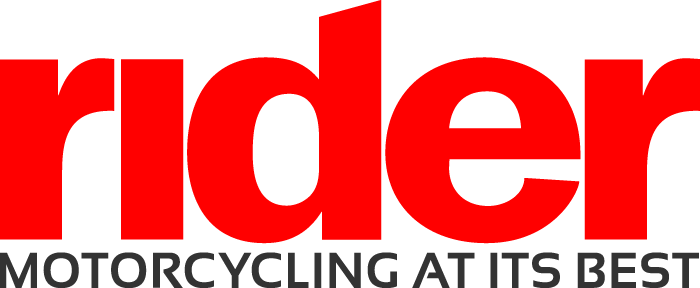






Review of Cardo’s design and company support: I bought 3 G9X less than 3 years ago from a large dealer, $700. They have a rechargeable battery that isn’t serviceable in them. They also cannot be repaired. Therefore I need to buy 3 more to replace what i have because one tone of them went bad. I think it is irresponsible for the vendor to design that way and therefore it is a flaw in the company and support for them. I tried to ask for help and escalated but only got a discount code to buy 3 more. I cannot recommend this company as they do not support their devices for long term. These devices should be support and last more than 3 years.
I havea training school in the uk
I purchased gx9 about 8 years ago and i still have them although i now use my smartpack i can only say how good they are and would highly recommend cardo system
I must say i was the first training school to use cardo radios in the uk and now have my nearby fellow trainers now using them cant say better than that
I and a friend purchased a pair of the packtalk bold headsets and found them very complicated to work and as for the FM radio it is worse than useless,the RDS feature is active but doesn’t actually work and I’m thinking we made a very expensive mistake with the equipment
The Cardo AND Sena are great out of the box. Get a year of service out of the units and then try to get ANY type of customer service. Non existence. MIA. Sucks.
Plan on pissing away $350 to $500 every few years.
Look up customer reviews and the related problems. Will make you think twice.
As a solo riding music playing, call receiving tool the packtalk bolk works well.
As an intercom system for 2 riders, its pants. Guaranteed that multiple times a ride we will have to stop and turn the radio off on at least one unit. No idea why, voice commands are disabled on both units… but either or both units will at some point just turn the radio on and then, the radio doesn’t work anyway even after setting the stations.
Says distance up to 1 mile apart, yeah right. More like 2 cars away and heaven forbid there is a car between the bikes or a bend in the road. This is in DMC mode even tried Bluetooth and that was worse.
Overall, the ancient G9X units we had before these were better products. If I hadn’t paid so much for these things they would have gone in the bin already.